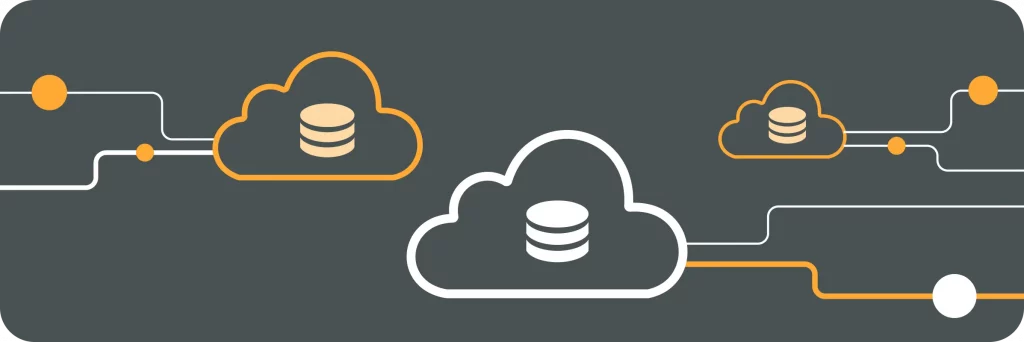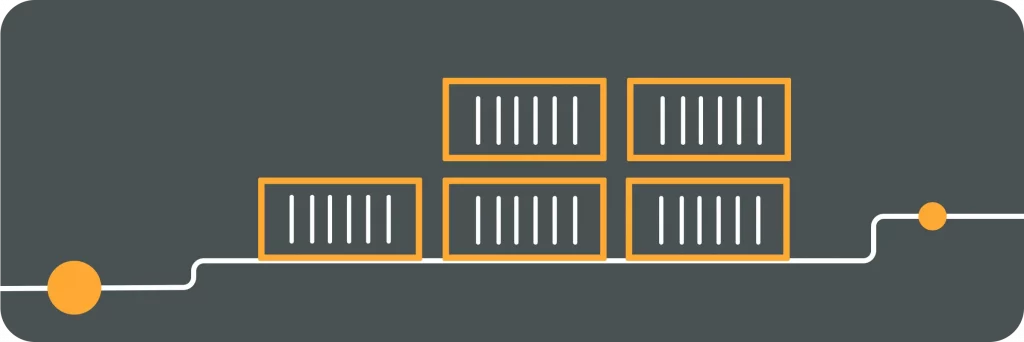Containerization has become an integral part of modern software development practices, especially in the context of DevOps. In this article, we will explore the basics of DevOps, delve into the concept of containerization, understand the intersection of DevOps and containerization, discuss popular containerization tools in DevOps, and highlight the challenges and solutions in implementing containerization.
Understanding the Basics of DevOps
DevOps is a software development approach that emphasizes collaboration, communication, and integration between development and operations teams. Its primary goal is to enable organizations to deliver high-quality software at a faster pace, with improved efficiency and reliability. DevOps brings together the traditionally siloed development and operations teams, promoting a culture of collaboration and continuous improvement.
The Role of DevOps in Software Development
In traditional software development processes, development and operations teams often operated independently, resulting in communication gaps, delays, and inconsistencies. DevOps bridges this gap by fostering close collaboration between these teams throughout the software development lifecycle. By adopting DevOps practices, organizations can achieve shorter development cycles, frequent releases, and faster time-to-market.
Key Principles of DevOps
DevOps is guided by a set of key principles:
- Automation: Automate repetitive and manual tasks to increase efficiency and reduce human error.
- Continuous Integration and Continuous Delivery (CI/CD): Implement processes to continuously integrate code changes, build and test applications, and deploy releases.
- Infrastructure as Code (IaC): Treat infrastructure provisioning, configuration, and management as code to enable consistent and reproducible environments.
- Monitoring and Feedback: Continuously monitor applications and collect feedback to identify issues, optimize performance, and drive improvements.
- Collaboration and Communication: Foster a culture of collaboration and effective communication between development and operations teams to ensure shared goals and responsibilities.
Automation plays a crucial role in DevOps. By automating repetitive and manual tasks, such as software builds, testing, and deployment, organizations can significantly increase efficiency and reduce the risk of human error. Automation tools and frameworks, like Jenkins and Ansible, enable teams to streamline their workflows and focus on more value-added activities.
Continuous Integration and Continuous Delivery (CI/CD) is another essential aspect of DevOps. CI/CD practices involve integrating code changes frequently and automatically building, testing, and deploying applications. This approach ensures that any issues or conflicts are identified and resolved early in the development process, leading to faster and more reliable software releases.
Infrastructure as Code (IaC) is a principle that treats infrastructure provisioning, configuration, and management as code. By defining infrastructure requirements in code, organizations can create consistent and reproducible environments. Tools like Terraform and CloudFormation enable teams to define infrastructure resources, such as servers and networks, using code, making it easier to manage and scale infrastructure as needed.
Monitoring and Feedback are crucial for maintaining the performance and reliability of software applications. DevOps encourages organizations to continuously monitor their applications, collect feedback from users, and analyze performance metrics. This data-driven approach helps identify bottlenecks, detect issues early on, and optimize application performance, ensuring a seamless user experience.
Collaboration and Communication are at the heart of DevOps. By fostering a culture of collaboration and effective communication between development and operations teams, organizations can ensure that everyone is working towards shared goals and responsibilities. This collaboration extends beyond just the teams directly involved in software development and includes stakeholders from different departments, such as QA, security, and customer support.
The Concept of Containerization
Containerization is a technique that allows for the packaging and isolation of software applications and their dependencies, enabling them to run consistently across different computing environments. Containers provide a lightweight and portable solution for deploying applications, enabling organizations to achieve greater flexibility, scalability, and efficiency.
Containerization has revolutionized the way software is developed, tested, and deployed in modern IT environments. By encapsulating applications and their dependencies into self-contained units, containers offer a level of consistency and predictability that was previously challenging to achieve. This approach streamlines the deployment process and enhances the overall agility of development teams.
Defining Containerization
In the context of software development, containerization refers to the process of encapsulating an application along with its dependencies, libraries, and configuration files into a single, self-contained unit known as a container. These containers provide an isolated runtime environment and allow applications to run consistently across different infrastructure platforms.
Containers are designed to be immutable, meaning that once created, their contents remain unchanged throughout their lifecycle. This immutability ensures that applications behave consistently regardless of the underlying infrastructure, making it easier to reproduce bugs and troubleshoot issues in different environments.
How Containerization Works
Containerization technology, such as Docker, utilizes container engines to manage the lifecycle of containers. Containers leverage the host operating system’s kernel and utilize various kernel features, such as namespaces and cgroups, to achieve isolation and resource management. With containerization, applications can be packaged and shipped with their required dependencies, ensuring consistent runtime environments across different development and deployment stages.
One of the key advantages of containerization is its ability to optimize resource utilization by running multiple containers on a single host machine. This efficient use of resources helps organizations reduce infrastructure costs and improve the scalability of their applications. Additionally, container orchestration tools, like Kubernetes, further enhance the management and deployment of containerized applications in complex, distributed environments.
The Intersection of DevOps and Containerization
Containerization has gained significant traction in the DevOps landscape. Its inherent benefits align well with the goals and principles of DevOps.
But what exactly is containerization? Containerization is a lightweight form of virtualization that allows applications to run in isolated environments called containers. These containers package all the necessary dependencies and libraries required for the application to run, ensuring consistent runtime environments across different systems.
Why does containerization matter in the context of DevOps? Let’s delve deeper into the advantages it offers:
- Consistency: Containers ensure consistent runtime environments, reducing the chances of issues related to configuration discrepancies across different environments. This consistency promotes smoother deployments and minimizes the risk of unexpected errors.
- Portability: Containers can be easily moved across different environments, from development to production, enabling organizations to achieve high consistency and agility. This portability allows for seamless deployments, making it easier to scale applications and respond to changing business needs.
- Scalability: Containers allow for efficient scaling of applications by rapidly deploying and managing multiple instances of containers. This scalability is crucial for handling varying traffic demands and ensuring optimal performance.
- Resource Efficiency: Containers utilize resources efficiently, enabling organizations to optimize infrastructure usage and reduce costs. By running multiple containers on a single host, resources can be maximized, leading to better resource allocation and cost savings.
The benefits of using containerization in DevOps extend beyond technical advantages. Let’s explore some of the broader benefits:
- Improved Collaboration: Containerization fosters collaboration between development and operations teams by providing a standardized approach for packaging and deploying applications. With containers, both teams can work together seamlessly, ensuring that applications are built, tested, and deployed consistently.
- Rapid Deployment: Containers enable organizations to deploy applications quickly and efficiently, reducing time-to-market and promoting faster release cycles. With containerization, the process of deploying applications becomes streamlined, allowing for faster iterations and quicker responses to customer demands.
- Isolation and Security: Containers provide isolation between applications and the host environment, improving security and reducing the impact of potential vulnerabilities. Each container operates independently, preventing any potential breaches from spreading to other containers or the underlying infrastructure.
- Scalability and Flexibility: With containerization, applications can scale horizontally by running multiple instances of containers, adapting to varying traffic demands efficiently. This scalability ensures that applications can handle increased workloads without compromising performance or user experience.
As containerization continues to evolve, it is becoming an integral part of the DevOps ecosystem. Its ability to provide consistency, portability, scalability, and resource efficiency, along with the broader benefits of improved collaboration, rapid deployment, isolation and security, and scalability and flexibility, make it a powerful tool for organizations embracing DevOps practices.
Containerization Tools in DevOps
Various containerization tools have emerged to simplify the adoption and management of containers in DevOps environments. Let’s explore some popular containerization tools:
Overview of Popular Containerization Tools
Docker: Docker is a widely adopted containerization platform that provides a comprehensive set of tools and services to build, package, and distribute containers.
Kubernetes: Kubernetes is an open-source container orchestration platform that automates the deployment, scaling, and management of containerized applications.
Amazon Elastic Container Service (ECS): ECS is a fully managed container orchestration service offered by Amazon Web Services (AWS) for deploying and managing containers.
Choosing the Right Containerization Tool for Your DevOps Needs
The choice of containerization tool depends on various factors, including organization size, complexity, infrastructure requirements, and specific use cases. It is essential to evaluate and select a tool that aligns with the organization’s DevOps goals and technical requirements.
Challenges and Solutions in Implementing Containerization in DevOps
While containerization brings significant benefits, it also poses some challenges for organizations during implementation. Let’s explore common challenges and best practices for overcoming them:
Common Challenges in Containerization
Complexity: Implementing containerization introduces new complexities, such as managing container orchestration, networking, and storage.
Security: Organizations must ensure the secure configuration of containers, address vulnerabilities, and implement appropriate access controls.
Best Practices for Overcoming Containerization Challenges
Automation: Utilize automation to streamline container deployment, configuration, and management processes.
Security: Implement container security best practices, such as vulnerability scanning, image signing, and role-based access control.
Monitoring and Logging: Use robust monitoring and logging solutions to gain visibility into containerized applications and detect performance issues or anomalies.
In conclusion, containerization plays a pivotal role in DevOps, enabling organizations to achieve faster, more efficient software development and deployment processes. By understanding the basics of DevOps, the concept of containerization, the intersection of DevOps and containerization, and the available containerization tools, organizations can leverage this technology to overcome challenges and reap the rewards of an optimized DevOps workflow.




